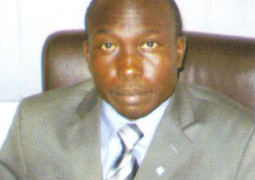A community training, sensitization and cleansing of the Bundung disaster hotspots kick-started on Wednesday at the Bundung Primary School.
The aim of the training is to sensitize community members on improving the drainage system, the rehabilitation of others and the creation of essential facilities such as new culverts, new Irish crossing, upgrade of fences, and removal of waste dumpsites, new earth ditches, and new improved pit latrines.
The training was attended by members of the community, KMC officials and other stakeholders of the EU-funded drainage, sanitation and water management project.
Speaking at the opening of the training, Malang Nyass, coordinator of the National Authorizing Officer System Support Unit (NAOSU), said the project is funded by the EU under the B-envelop of the 10 EDF National Indicative Programme to the tune of €1.9 million.
He said the project came about as a result of a request made by the Government of The Gambia to the EU for support to address adverse consequences of the heavy rains which created massive flooding in September and October 2010 and impacted negatively on many families in different parts of the country.
Mr Nyass added that the proposed interventions of the project will address temporarily the issue of drainage, sanitation and waste management in 7 hotspots including Bundung.
The overall objective of the project is to improve the living conditions and health of the most vulnerable population by the impact of future heavy rains.
Madam Agnes Guillaud, Charge d’ Affaires of the European Union to The Gambia, said every year during the rainy season many low-lying areas of the country are flooded as the River Gambia and its tributaries rise.
According to her, numerous communities have experienced the damage and hardship caused by the particularly heavy rains and flooding of the past years.
Madam Agnes Guillaud said the Government of The Gambia through the National Disaster Management Agency provided funds for immediate remedial works and at the same time asked the EU for support for more long-term works on the drainage system, as well as the implementation of training and communication, in order to mitigate the impact of future floods.
She went further to say that the EU-funded Drainage, Sanitation and Waste Management Project was prepared in close collaboration with the responsible Gambian agencies and approved for a total amount of €1.9 million Euros (or about D85 million dalasis) to mitigate the impact of future flooding, along the lines of The Gambia’s Disaster Management Policy.
The project scope also includes training and sensitization activities for local governments and communities in order to enable the maintenance and sustainability of the infrastructures and waste disposal systems.
The programme will be implemented in 7 of the areas most vulnerable to flooding, namely Banjul, Brikama, Barra, Bansang, Soma, Basse and Bundung.
Other speakers on the occasion included Sering Modou Joof, executive director of the National Disaster Management Agency, who said that during the past three decades, The Gambia is beset by frequent occurrence of disastrous events of both natural and human-induced origins.
He noted that the country is included in the IPCC - International Panel Climate Change’s critical list of 100 countries that are most vulnerable to climate change – and is particularly susceptible to its negative weather-related hazardous events such as drought, windstorms, flood and sea level rise.
Read Other Articles In Article (Archive)



